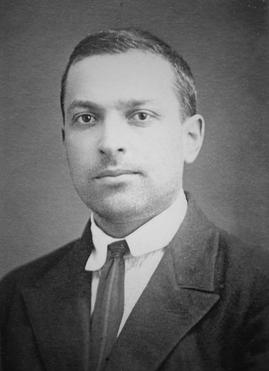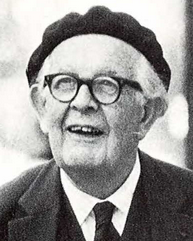Related Research Articles

Developmental psychology is the scientific study of how and why humans grow, change, and adapt across the course of their lives. Originally concerned with infants and children, the field has expanded to include adolescence, adult development, aging, and the entire lifespan. Developmental psychologists aim to explain how thinking, feeling, and behaviors change throughout life. This field examines change across three major dimensions, which are physical development, cognitive development, and social emotional development. Within these three dimensions are a broad range of topics including motor skills, executive functions, moral understanding, language acquisition, social change, personality, emotional development, self-concept, and identity formation.
Educational psychology is the branch of psychology concerned with the scientific study of human learning. The study of learning processes, from both cognitive and behavioral perspectives, allows researchers to understand individual differences in intelligence, cognitive development, affect, motivation, self-regulation, and self-concept, as well as their role in learning. The field of educational psychology relies heavily on quantitative methods, including testing and measurement, to enhance educational activities related to instructional design, classroom management, and assessment, which serve to facilitate learning processes in various educational settings across the lifespan.

Lev Semyonovich Vygotsky was a Russian and Soviet psychologist, best known for his work on psychological development in children and creating the framework known as cultural-historical activity theory. After his early death, his books and research were banned in the Soviet Union until Joseph Stalin's death in 1953, with a first collection of major texts published in 1956.

Jean William Fritz Piaget was a Swiss psychologist known for his work on child development. Piaget's theory of cognitive development and epistemological view are together called genetic epistemology.

Albert Bandura was a Canadian-American psychologist. He was a professor of social science in psychology at Stanford University.
The New York UniversitySteinhardt School of Culture, Education, and Human Development is the education school of New York University. The school was founded as the School of Pedagogy in 1890. Prior to 2001, it was known as the NYU School of Education.
Evolutionary developmental psychology (EDP) is a research paradigm that applies the basic principles of evolution by natural selection, to understand the development of human behavior and cognition. It involves the study of both the genetic and environmental mechanisms that underlie the development of social and cognitive competencies, as well as the epigenetic processes that adapt these competencies to local conditions.
Jerome Kagan was an American psychologist, who was the Daniel and Amy Starch Research Professor of Psychology at Harvard University, as well as, co-faculty at the New England Complex Systems Institute. He was one of the key pioneers of developmental psychology.
Paul B. Baltes was a German psychologist whose broad scientific agenda was devoted to establishing and promoting the life-span orientation of human development. He was also a theorist in the field of the psychology of aging. He has been described by American Psychologist as one of the most influential developmental psychologists.
Anna Stetsenko is a developmental psychologist known for her important contributions to cultural-historical activity theory, building on the work of Lev Vygotsky, Leontiev and Alexander Luria. Her research centers human development, education, and social theory.

Stephen W. Porges is an American psychologist. He is the Professor of Psychiatry at the University of North Carolina at Chapel Hill. Porges is also currently Director of the Kinsey Institute Traumatic Stress Research Consortium at Indiana University Bloomington, which studies trauma.

Andreas Demetriou is a Greek Cypriot developmental psychologist and former Minister of Education and Culture of Cyprus. He is a founding fellow and president of The Cyprus Academy of Sciences, Letters and Arts.
Philip David Zelazo is a developmental psychologist and neuroscientist. His research has helped shape the field of developmental cognitive neuroscience regarding the development of executive function.
Darcia Narvaez is a Professor of Psychology Emerita at the University of Notre Dame who has written extensively on issues of character, moral development, and human flourishing.
Margaret Beale Spencer is an American psychologist whose work centers on the effects of ethnicity, gender, and race on youth and adolescent development. She currently serves as the Marshall Field IV Professor of Urban Education in the Department of Comparative Human Development at the University of Chicago. Dr. Spencer's career spans more than 30 years and consists of over 115 published articles and chapters, stemming from work funded by over two-dozen foundations and federal agencies.
Adam Winsler is a developmental psychologist known for his research on early child development, private speech, and benefits of arts education. Winsler is Professor of Applied Developmental Psychology at George Mason University.
Grazyna Kochanska is a Polish-American developmental psychologist known for her research on parent-child relationships, developmental psychopathology, child temperament and its role in social development. She is the Stuit Professor of Developmental Psychology at the University of Iowa.
Cassandra Cybele Raver is an American developmental psychologist currently serving as Provost and Vice Chancellor for Academic Affairs at Vanderbilt University. She previously served as Deputy Provost at New York University and Professor of Applied Psychology in the Steinhardt School of Culture, Education, and Human Development at NYU.
Diane Leslie Hughes is a developmental psychologist known for her research on racial-ethnic socialization, parent-child communication about discrimination and racism, interracial relationships, and the influence of racial ecology on people's experiences in social settings. She is Professor of Applied Psychology at the Steinhardt School of Culture, Education, and Human Development and co-director of the Center for Research on Culture, Development, and Education at New York University.
The Department of Human Development was a multidisciplinary department at Cornell University from 1925 to 2021. During its lifetime, the Department led research on developmental science to simultaneously advance theory and improve life. The department emphasized an ecological perspective of human development that examined social, cultural, biological, and psychological processes and mechanisms of growth and change throughout the life cycle and across diverse contexts. Many significant social science scholars of the 20th and 21st century, including Urie Bronfenbrenner and Kurt Lewin, were among the department's faculty. A number of the department's graduate students became significant figures in the social sciences with their work tending toward interdisciplinary and cross-disciplinary approaches.
References
- ↑ "Clancy Blair". Steinhardt School of Culture, Education, and Human Development. Retrieved 22 February 2019.
- ↑ Jaffe, Eric (30 July 2015). "Portrait of Self-Control as a Young Process". APS Observer. 28 (6). Retrieved 22 February 2019.